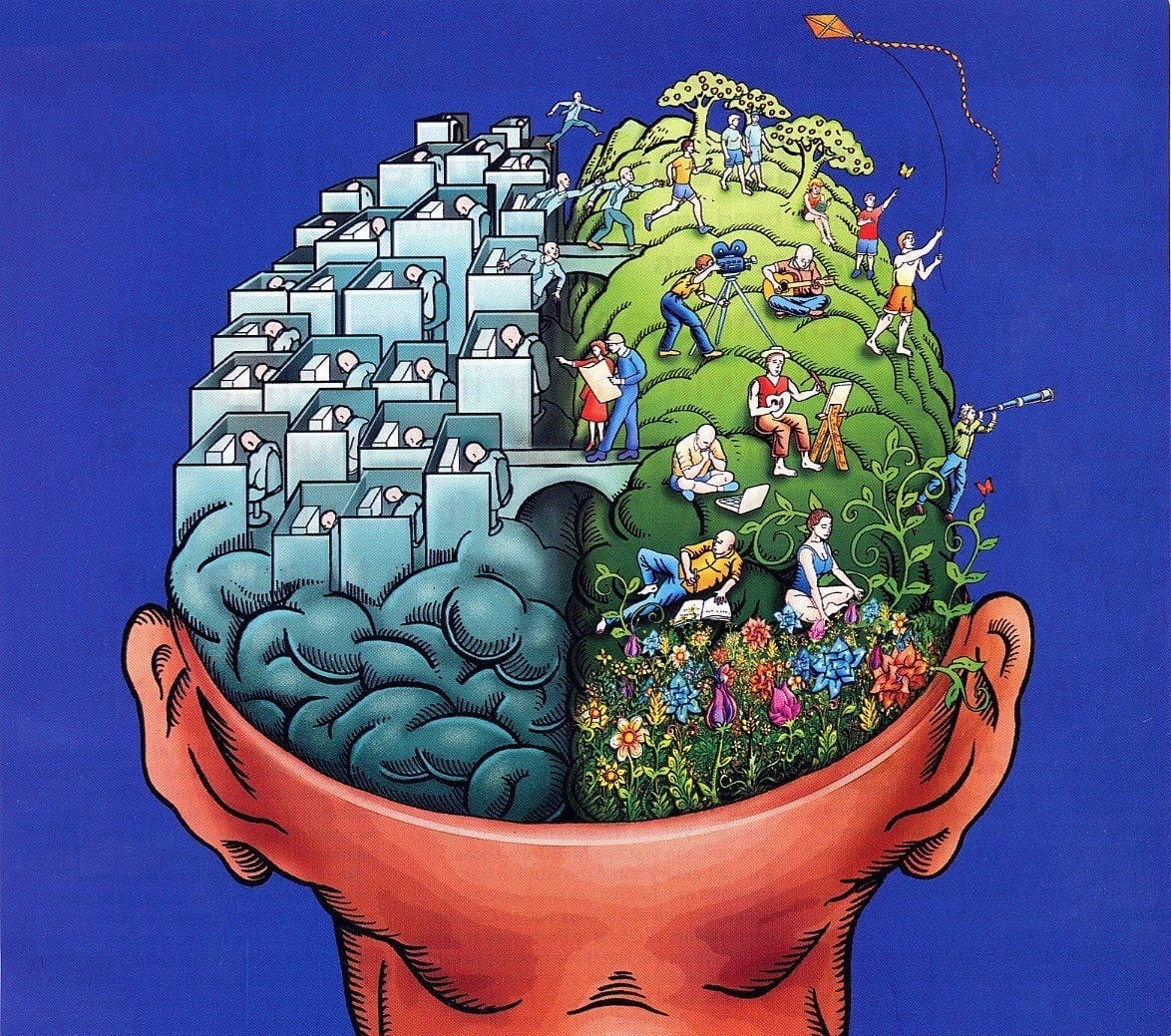
How To Cope With Grief: It Changes Your Brain
Do you feel emotionally stuck after a big life change or loss with low physical and psychological energy levels? Feeling like you have brain fog and everything’s a struggle?
If it helps, I’d like to reassure you that it’s not unusual to suffer physical and emotional depletion after coping with an acutely stressful change or loss in your life.
When we talk about loss we often mean the death of someone or something that we love. But it is important to recognise that we can also experience loss, or grief, when confronted with other endings and losses such as:
- the breakup of a relationship
- homesickness
- empty nest syndrome
- the end of an important role or job
- a transitional phase of life
- the diagnosis of a life-changing illness
- being ghosted
- friendships changing
- unfulfilled dreams
- death of a pet
- moving home
People can also grieve when adjusting to any sort of new normal.
Maybe you’re becoming an empty nester, or you’re newly retired. The emotions you experience look similar to grief – and underneath that grief are neurological changes that take place in the brain.

Grief impacts us emotionally and physically and rewires your brain. The intensity of this loss can lead to a symptoms known as grief brain.
This is a natural part of grief. Your brain is on overloaded with thoughts of grief, sadness, loneliness and many other emotions.
Your brain is focused on the feelings and symptoms of grief which leaves little room for your everyday tasks.
Over time, grief can affect:
- attention
- memory
- decision-making
- the ability to choose words and express yourself with the right language
- information processing speed
- cognitive functions that rely on movement and depth perception
- sleep

In fact, several regions of the brain play a role in our emotions of loss, including areas within the limbic system and pre-frontal cortex. These involve emotional regulation, memory, multi-tasking, organisation and learning.
The brain reacts to grief or emotional trauma in the same way it handles stress.
Grief that lasts for weeks or months can push your brain and body into a state of chronic stress.
The initial shock puts the brain into survival mode.
This means:
- Fight-or-flight hormones are released.
- Your heart rate increases.
- Blood flows to the more emotional and fear-based parts of your brain instead of the higher thinking regions.
- Nutrients are used up quickly as the brain produces high levels of stress neurotransmitters (Epinephrine and nor-epinephrine)
Your prefrontal cortex, which is an area of the brain highly involved in decision-making, becomes less active. At the same time, your limbic system, which is all about survival, takes over.
Depending on the strength of your emotional response, your brain starts to rewire its regular nerve connections and to create new pathways.

This means that more emotional and fear-based neural pathways start to replace your longterm pathways that you have developed through the experience’s of your lifetime.
When you’re grieving, a flood of neurochemicals and hormones cascades through your brain.
These chemicals can lead to:
- disturbed sleep
- loss of appetite
- fatigue
- anxiety
- sadness
- loneliness
- depression
- meaninglessness
- guilt
- overthinking
- numbness
- tearfulness
- detachment

When those symptoms converge, your brain function takes a hit.
Scientists are increasingly viewing the experience of traumatic loss as a type of brain injury. The brain rewires itself — a process called neuroplasticity — in response to emotional trauma, which has profound effects on the brain, mind and body
After a loss, the brain perceives a psychological threat, goes into survival mode and releases stress hormones and chemicals resulting in your “fight, flight or freeze” response. Each day, reminders of the loss trigger this stress response which remodels the brain’s circuits.
The pathways that you have relied on for most of your life take some massive, but mostly temporary, detours and the brain shifts upside down, prioritising the most primitive threat coping functions.
Grieving is a protective process. It’s an evolutionary adaptation to help us survive in the face of emotional trauma. The way grief manifests — from depression to hopelessness, from dissociative symptoms to emotional pain — is simply evidence of altered brain function.
So how do you heal an emotionally traumatised brain?
If you can understand the changes that are happening in the brain instead of worrying that you’re losing your mind, or your sense of self, it can help you live with your feelings.
As with any injury, an emotionally traumatised mind requires a period of recovery and rehabilitation. You don’t return to your usual activities immediately after heart surgery, yet somehow you expect to bounce back after the effects of loss.

With grief, the mediator between the right and left hemispheres of the brain — the thinking and feeling parts — is impaired.
Research suggests that you can encourage the integration of the right and left hemispheres with activities including:
- meditation
- psychotherapy
- massage
Neuroplasticity moves in both directions, changing in response to traumatic loss, and then changing again in response to restorative experience.
Neuroplasticity can refer to the strengthening (or lessening) of existing neuronal pathways, or the establishment of entirely new neurons and connections.
Ultimately, neuroplasticity allows us to adapt, to respond, to evolve in real time to a changing environment.
Would you like to shift your feelings or your mindset?
Want to get rid of bad habits and establish good ones? Want to acquire a new skill? Want to remain cognitively fluid and mentally limber as you age?
For psychological flexibility you need to support healthy brain plasticity.
One way is to provide the vital nutrients required to promote neuroplasticity. The brain needs a constant supply of about 30 nutrients to work at an optimal level. Lacking any of these nutrients will impair your ability to grow new neurons, establish new connections, and strengthen existing ones.
|
Brain-healthy nutrients help neural plasticity by the following mechanisms:
|
If you are feeling particularly emotionally drained, increasing your intake of specific vitamins and minerals can really help to replenish your brain and neurotransmitters to help you cope with difficult emotions.

Nutrients that are effected by emotional distress
Here are some of the most common vitamins and nutrients that may end up depleted during times of extra adversity, challenge, change, loss and stress:


For an award winning, psychologist- designed, mood support multi vitamin try:
It really has struck me that grieving can be thought of as a form of learning.
You have to figure out:
How do I live in the world now?

There is a rewiring then that has to happen in brains when we are adjusting to the difficult, painful and challenging episodes in our lives. And nutrients are one of the most powerful ways that you can take care of yourself in these times.



Leave a comment
This site is protected by hCaptcha and the hCaptcha Privacy Policy and Terms of Service apply.